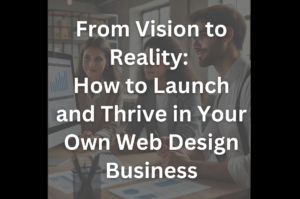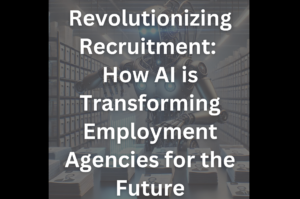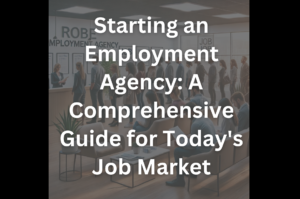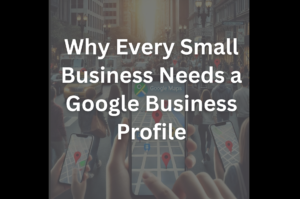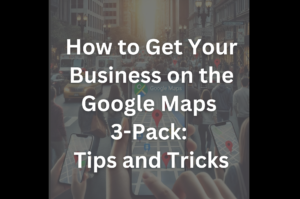**Disclosure:** We believe in honesty and transparency to the fullest extent. Some of the links on this blog are affiliate links, meaning, at no additional cost to you, we will earn a commission if you click through and make a purchase. This is one of the simplest ways you can support us.
The Role of AI in the Modern Employment Agency
Artificial Intelligence (AI) is rapidly transforming industries across the globe, and the staffing and recruitment sector is no exception. In an era where efficiency, precision, and scalability are paramount, AI offers employment agencies the tools they need to stay competitive. From automating routine tasks to enhancing decision-making with data-driven insights, AI is reshaping how agencies connect job seekers with employers. The integration of AI in recruitment processes not only improves the speed and quality of hires but also helps in overcoming common challenges such as candidate sourcing, screening, and bias reduction. As the job market becomes increasingly complex, the adoption of AI is no longer a luxury but a necessity for employment agencies aiming to thrive in this dynamic environment.
Be sure to check out our previous article that runs through how to start an employment agency!
AI-Powered Candidate Sourcing and Screening
One of the most significant ways AI is transforming employment agencies is through candidate sourcing and screening. Traditionally, recruiters would spend countless hours manually searching job boards, sifting through resumes, and conducting initial interviews. AI streamlines these processes by leveraging advanced algorithms to automate candidate sourcing. These AI-driven tools can scour job boards, social media platforms, and online databases to identify potential candidates that match specific job criteria, significantly reducing the time and effort required for this task.
Once potential candidates are identified, AI-powered screening tools come into play. These tools can analyze resumes and cover letters to evaluate candidates based on predefined qualifications, skills, and experience. Natural Language Processing (NLP) technologies enable these systems to understand and interpret the content of resumes, ensuring a more accurate match between the candidate’s profile and the job requirements. This level of automation allows recruiters to focus on higher-level tasks, such as interviewing and candidate engagement, while ensuring that only the most qualified candidates move forward in the hiring process.
Moreover, AI can help in the initial stages of candidate assessment by conducting preliminary interviews through chatbots or virtual assistants. These AI tools can ask candidates a series of questions to gauge their suitability for the role, further filtering the candidate pool before human intervention is required. By handling these repetitive tasks, AI not only increases the efficiency of the recruitment process but also improves the overall candidate experience by providing timely feedback and communication.
By leveraging AI in candidate sourcing and screening, employment agencies can dramatically increase their productivity, reduce time-to-hire, and improve the quality of their placements, ultimately leading to better outcomes for both employers and job seekers.
Enhanced Candidate Matching
AI has revolutionized the candidate matching process by introducing predictive analytics and advanced algorithms that go beyond traditional keyword-based searches. In a conventional recruitment setting, matching candidates to job openings typically involved manually comparing resumes to job descriptions. However, AI can analyze vast amounts of data, including past hiring trends, candidate profiles, and job performance metrics, to predict which candidates are likely to be the best fit for a particular role.
Predictive Analytics in Matching: AI-driven predictive analytics assess the likelihood of a candidate’s success in a role by examining historical data. For instance, AI can analyze the characteristics of employees who have excelled in similar positions and use this data to match candidates with similar profiles. This approach helps in identifying high-potential candidates who might not have been considered through traditional methods, ensuring a better fit and higher retention rates.
Skills Matching: AI can also match candidates’ skills with job requirements more effectively. Instead of relying solely on the exact matches between job descriptions and resumes, AI can identify transferable skills and experiences that may not be explicitly stated but are relevant to the role. For example, a candidate with experience in project management in a non-profit organization might be a great fit for a similar role in a corporate setting, even if the job titles differ. AI’s ability to recognize these nuances in skill sets allows for more accurate and broader candidate matching, which benefits both the employer and the job seeker.
By enhancing the candidate matching process with AI, employment agencies can significantly improve the quality of hires, reduce the likelihood of mismatches, and increase overall job satisfaction among employees.
Streamlining Communication and Engagement
Effective communication is crucial in the recruitment process, and AI is playing an increasingly vital role in enhancing how employment agencies interact with candidates. One of the most prominent applications of AI in this area is through the use of chatbots and automated messaging systems.
AI Chatbots for Initial Engagement: AI-powered chatbots are becoming a staple in the recruitment industry, serving as the first point of contact for candidates. These chatbots can engage with potential candidates 24/7, answering common questions, guiding them through the application process, and even conducting initial screenings. This not only saves time for recruiters but also provides a seamless and responsive experience for candidates, who no longer have to wait for business hours to get answers to their queries.
Automated Follow-Ups: One of the challenges in the recruitment process is maintaining consistent communication with candidates, especially when dealing with a large volume of applicants. AI can automate follow-up emails and notifications, ensuring that candidates are kept informed throughout the hiring process. Whether it’s confirming receipt of an application, updating candidates on their status, or scheduling interviews, AI-driven communication tools can handle these tasks efficiently and without human error.
Personalized Communication: AI can also help tailor communication to each candidate, making the interaction feel more personalized. By analyzing data on a candidate’s background, AI can generate customized messages that address specific aspects of their application, such as acknowledging relevant skills or experiences. This level of personalization can enhance candidate engagement and improve the overall experience, making candidates feel valued and more connected to the process.
Through these AI-driven communication and engagement tools, employment agencies can not only streamline their operations but also create a more positive and responsive experience for candidates, which is crucial in today’s competitive job market.
Bias Reduction in Hiring
One of the significant challenges in recruitment is addressing unconscious bias, which can influence hiring decisions based on factors unrelated to job performance, such as a candidate’s name, gender, or ethnicity. AI is increasingly being utilized to mitigate these biases and promote fairer hiring practices.
AI for Objective Screening: AI-driven screening tools focus on the qualifications, skills, and experience of candidates rather than subjective criteria. By using predefined algorithms, these tools assess candidates based on the data provided in their resumes and applications, ensuring that decisions are made based on merit alone. For example, AI can anonymize applications by removing names, photos, and other identifiers that could lead to biased decisions, allowing recruiters to focus solely on the candidates’ qualifications and experience.
Blind Recruitment Tools: Many AI tools are designed specifically to support blind recruitment practices, where information that could reveal a candidate’s identity, such as name, age, or gender, is hidden during the initial stages of the hiring process. This method helps to reduce the impact of unconscious bias, leading to more diverse and inclusive hiring outcomes. Research has shown that blind recruitment can increase the likelihood of hiring candidates from underrepresented groups, contributing to a more equitable workplace.
However, it is crucial to note that while AI can help reduce bias, it is not entirely foolproof. AI systems are only as good as the data they are trained on. If the training data contains biases, the AI can inadvertently perpetuate those biases. Therefore, it’s essential for employment agencies to use diverse and representative datasets when training their AI tools and to regularly audit these systems for bias.
Data-Driven Decision Making
AI’s ability to process and analyze large volumes of data allows employment agencies to make more informed and strategic decisions throughout the recruitment process. By leveraging data-driven insights, agencies can optimize their operations, improve hiring outcomes, and better align their strategies with market demands.
AI in Workforce Planning: AI tools can analyze labor market trends, salary data, and workforce demographics to help employment agencies anticipate hiring needs and develop effective workforce planning strategies. For example, AI can predict which skills will be in high demand in the near future, allowing agencies to proactively source candidates with those skills. Additionally, AI can help agencies determine the most competitive salary ranges for different roles, ensuring that their job offers are attractive to top talent.
Reporting and Analytics: AI can also generate detailed reports and analytics on recruitment activities, providing valuable insights into key performance indicators (KPIs) such as time-to-fill, cost-per-hire, and candidate conversion rates. These analytics help agencies identify areas where they can improve efficiency, such as streamlining certain stages of the hiring process or reallocating resources to more effective sourcing channels. For instance, if data shows that a particular job board consistently produces high-quality candidates, an agency might choose to invest more in advertising on that platform.
Furthermore, AI-driven analytics can offer insights into broader trends in the job market, such as shifts in candidate behavior or changes in industry demands. By staying informed about these trends, employment agencies can adapt their strategies to remain competitive and better meet the needs of their clients.
In conclusion, by incorporating AI into decision-making processes, employment agencies can enhance their strategic planning, improve recruitment efficiency, and make data-backed decisions that drive better outcomes for both employers and job seekers.



